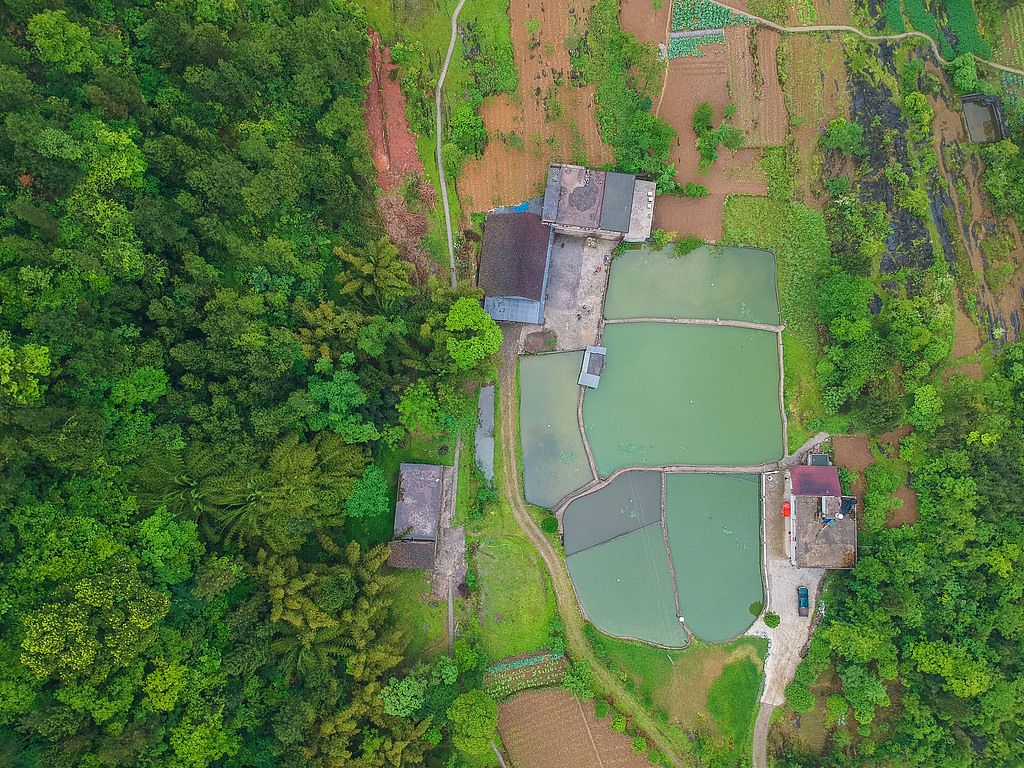
An aerial view of a cropland in Chongqing's Pengshui Miao and Tujia autonomous county, May 12, 2021. [Photo/VCG]
Once a bustling hub of coal mining activity in Southwest China, Lutang township in Chongqing's Pengshui Miao and Tujia autonomous county, has achieved a sustainable development in recent years by fruit planting and rural tourism.
Pengshui, situated in the Wuling Mountains area in southeastern Chongqing, boasts rich mineral resources. The area's three largest coal mines, one fully situated and one partially situated in Lutang, used to collectively produce up to two million tons of coal annually, according to local authorities.
However, excessive mining activities have resulted in environmental degradation — leading to the accumulation of thick layers of coal ash on neighboring plants and rooftops. In 2016, all local coal mines were shut down due to environmental concerns. As the local coal mines started to close down one by one, they encountered a formidable challenge — the barren mountains offering little to the villagers, coupled with outdated infrastructure, inadequate arable land and the outflow of local talent.
"At that time, a lot of people in our village left home and made a living elsewhere," said Mao Tingbing, Party chief of Lutang's Leyuan village.
To address these issues, in the same year, the village established a cooperative — making full use of the abandoned land to develop orange and grapefruit cultivation. Later, the village led the planting of sweet potatoes throughout the village on over 153 hectares of land — achieving an average income of over 2,000 yuan ($285) for each household. To add the diversity, the village introduced tea planting, sika deer raising.
The village collective economic organization adopted a rotation mode of growing sweet potatoes, rice, sorghum, corn and rapeseed, benefiting 1,459 villagers in 451 households — with an average income increase of over 3,000 yuan per household.
The village has also become a hot destination for returning migrant workers.
Fifty-seven-year-old local Wang Liehui is anticipating a bumper harvest in his oranges and grapefruits orchards next year. Seven years ago, Wang gave up his previous business and contracted over 40 hectares of land to establish the fruit orchards. He said the annual production is expected to be 500,000 kilograms, generating profits of 2 million yuan.
After coal mines have gradually been completely shut down in Pengshui, clean energy projects such as hydropower, wind energy, and tourism, as well as ecological industries, have been steadily growing.
Last year, Pengshui ranked first in the city's GDP growth with a growth rate of 8.2 percent, data from the local authorities showed.
编辑:程祥